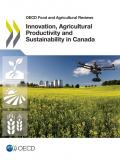The Green Action Plan (GAP), proposed by the European Commission in 2014, is aimed at helping SMEs turn environmental challenges into opportunities. It focuses on resource efficiency, green entrepreneurship and green skills, eco-innovation, greener value chains, and facilitating market access for SMEs. It also provides tools for the internationalisation of European SMEs, taking advantage of Europe's leadership in green technologies. The Plan complements other EU initiatives, such as the Green Employment Initiative, a Roadmap to a Resource Efficient Europe, Circular Economy and European Industrial Renaissance, and is intended to create synergies between them, using the financing under existing programmes. The actions proposed are intended not only to benefit SMEs and the economy, but also to help address environmental challenges related to resource scarcity, waste management and climate change.

Ministers at the Seventh “Environment for Europe” Ministerial Conference (Astana, 21–23 September 2011) agreed to take the lead in the transition to a green economy and to make a substantive contribution to the discussions on green economy within the context of sustainable development and poverty alleviation at the United Nations Conference on Sustainable Development (Rio+20 Conference). They invited the United Nations Economic Commission for Europe (ECE) to contribute, together with the United Nations Environment Programme (UNEP) and relevant international organizations, to the development of the Rio+20 green economy outcomes.
This report contains the requested overview, which was prepared jointly with UNEP and in consultation with the United Nations Development Programme, the International Labour Organization, the United Nations Educational, Scientific and Cultural Organization, the World Health Organization, the United Nations Industrial Development Organization, the European Environment Agency and the Organization for Economic Cooperation and Development.
This report was prepared in accordance with the “Environment for Europe” (EfE) Reform Plan to support the work of the Seventh EfE Ministerial Conference. It follows the agreed questions for discussion in the multi-stakeholder round tables, describing recent trends, challenges and achievements, as well as recommendations for the way forward.
The document was developed jointly by the United Nations Economic Commission for Europe (UNECE) secretariat and the United Nations Environment Programme to support Conference discussions on this topic of the agenda. The International Labour Organization provided two case studies. The document also reflects comments received from member States.
The 2011 Green Growth Strategy provided initial guidance to governments on how to achieve economic growth and development, while preventing costly environmental damage and inefficient resource use. What progress have countries made in aligning economic and environmental priorities since 2011? This report attempts to evaluate this progress and highlight where there is broad scope to heighten the ambition and effectiveness of green growth policy. It draws lessons from green growth mainstreaming across the OECD’s work programme, notably in terms of how governments can maximise institutional settings to seize economic opportunities surrounding the transition to a green economy, and considers ways to enrich the Green Growth Strategy based on work undertaken since its launch.
